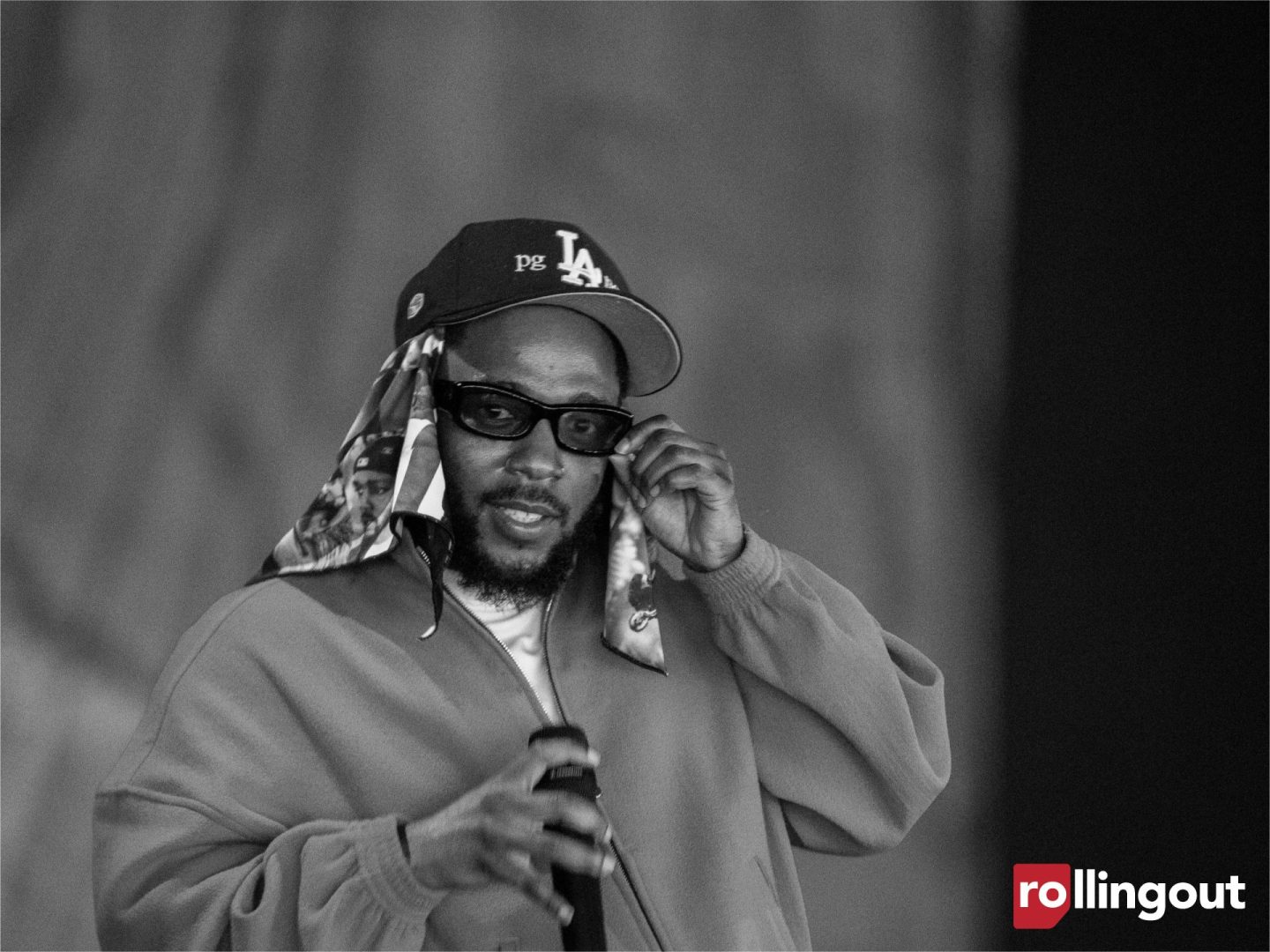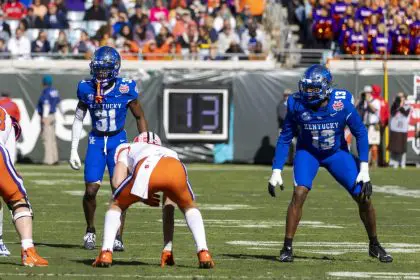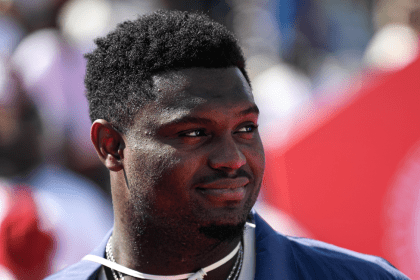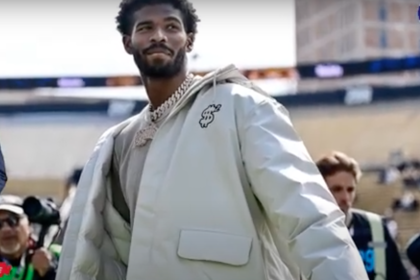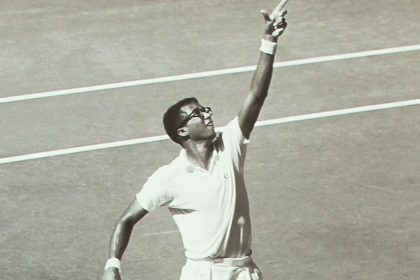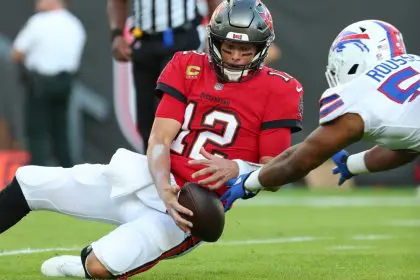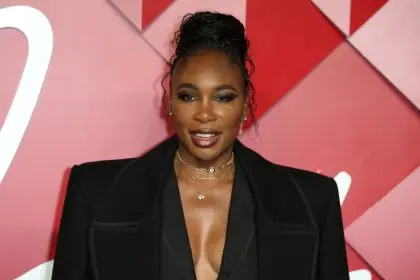Kendrick Lamar performed a censored version of his Drake diss track during the Super Bowl half-time show on Sunday, Feb. 9. The performance drew an estimated 115 million viewers worldwide, making it one of the most-watched musical performances in television history.
The 37-year-old rap star teased the controversial song, “Not Like Us,” throughout his 13-minute set in New Orleans, before finally giving the sold-out crowd at the Caesars Superdome what they wanted. The Superdome, which holds more than 76,000 spectators, was filled to capacity for the historic performance.
Prior to the game, fans wondered whether Kendrick would perform the record, after Drake previously filed a defamation lawsuit against his rap rival for lyrics that accuse him of being a sexual predator, which he denies. The legal battle has become one of hip-hop’s most talked-about feuds of the decade.
“I want to play their favorite song … but you know they love to sue,” Kendrick said a couple of minutes into his performance. The comment immediately sparked trending discussions across social media platforms.
The Grammy-winning star performed “Not Like Us” at the end of his set, but he opted to censor the most controversial lyrics amid the ongoing legal battle. The original version of the track has accumulated more than 50 million streams since its release.
Drake’s lawyers are currently suing Universal Music Group, Kendrick’s record label, over the track, observing that the song includes “false factual allegations” about the rapper. The lawsuit seeks damages reportedly exceeding $10 million.
Meanwhile, Kendrick’s show also included performances of “Humble,” “DNA,” “Squabble Up,” “Man At The Garden” and “Euphoria,” another Drake diss track. Each song has achieved platinum status, with “Humble” being certified diamond for sales exceeding 10 million units.
The rap star arrived on stage atop a black Buick GNX car, the same model his father drove home from hospital after Kendrick was born in June 1987. The vintage vehicle is now worth over $200,000 in collector’s markets.
Kendrick was later joined on stage by SZA as they performed their hits, “All the Stars” and “Luther,” together, while Serena Williams, the Grand Slam-winning tennis legend, also made a surprise appearance as a dancer. Their collaboration marks their first live performance together since the 2024 Grammy Awards.
Elsewhere, Hollywood star Samuel L. Jackson played host as Uncle Sam, praising Kendrick’s performance with SZA. Jackson’s appearance marked his first Super Bowl commercial appearance in over a decade.
“That’s what I’m talking about. That’s what America wants, nice and calm,” the actor said at one point. His commentary provided a stark contrast to the controversial nature of the performance.
Kendrick’s performance marked the first time that a solo rapper had headlined the Super Bowl, and his efforts were watched by a host of big names from the world of entertainment, including Sir Paul McCartney, Lady Gaga, Jay-Z, Taylor Swift, Ice Spice, Paul Rudd, and Bradley Cooper. The celebrity-filled audience represented a combined net worth of more than $5 billion.
The Philadelphia Eagles beat the Kansas City Chiefs 40-22, thereby denying the Chiefs an unprecedented third straight Super Bowl victory. The game attracted the highest television ratings for any sporting event in 2025 thus far.
The halftime show’s production costs reportedly exceeded $7 million, making it one of the most expensive Super Bowl performances ever. The elaborate stage design included cutting-edge technology and required more than 500 crew members to execute the complex choreography and set changes.
The performance has already garnered more than 100 million views across various social media platforms, with the controversial moments generating intense online discussion. Music industry experts predict the exposure could boost Kendrick’s streaming numbers by up to 300 percent in the following weeks.
This historic performance not only showcased Kendrick’s artistic prowess but also highlighted the evolving landscape of hip-hop culture in mainstream entertainment. The inclusion of such controversial content in America’s biggest sporting event demonstrates the genre’s growing influence in popular culture.

